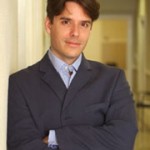
- This event has passed.
Gregory Heyworth: “Textual Science and the Future of the Past”
Thursday, January 30, 2014 @ 2:00 pm - 3:00 pm


Over the past decade, a quiet technological revolution has been occurring in the humanities. Great texts – the Archimedes palimpsest, the Dead Sea Scrolls among others – once largely illegible and lost to history, have been returned to us through spectral imaging. We stand now at the threshold of a renaissance of the past, but only if we can integrate science with the humanities in a new, hybrid discipline. Textual Science, as Gregory Heyworth argues, is poised to change the established order of things: the notion that the humanities is about husbanding the past with scholarship that adds to human insight in ever slenderer increments; that the canon is a coffin, the past irrevocably the past, and that scholars and students must behave as humble curators rather than archaeologists of an undiscovered country; that the artistic mind cannot, in any profound way, share neurons with the scientific. With images of recovered works, many previously unseen, this talk will chart the way ahead in theory and praxis.
Gregory Heyworth is Associate Professor of English at the University of Mississippi, and the Director of the Lazarus Project, an initiative to recover damaged manuscripts using spectral imaging. A medievalist and expert in textual studies, he has authored several books, the most recent an edition of the second longest poem in French, the 14th century Eschéz d’Amours, a unique manuscript damaged in the bombing of Dresden and long deemed illegible. He is currently recovering and editing the oldest translation of the Gospels into Latin and writing a book on Textual Science.
